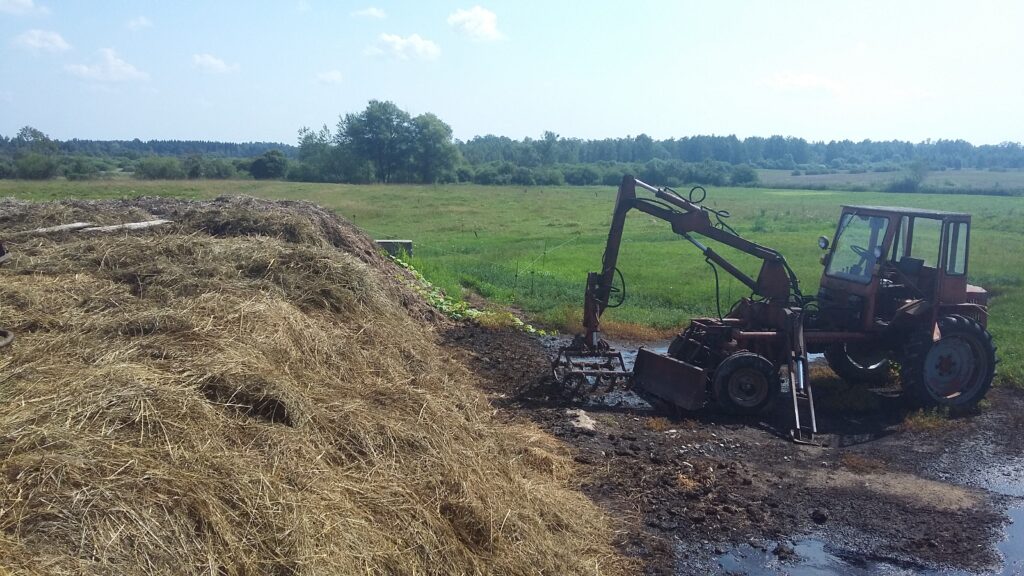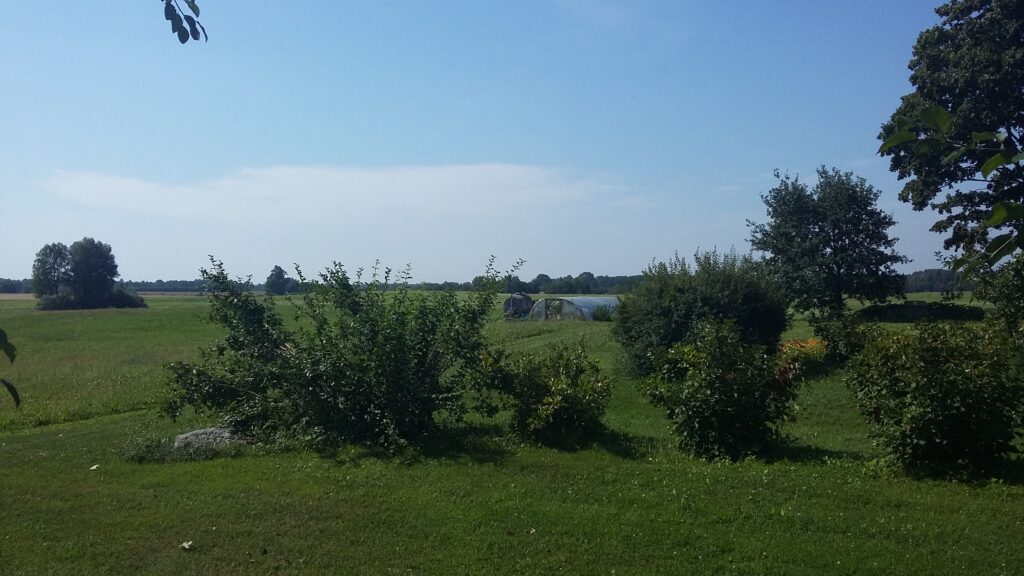When Andris Kalniņš was given the chance to repossess his family land in 1992, he seized the opportunity and left his engineering job in Riga to try his luck at farming. Today, he operates the 132 hectares as an organic and biodynamic crop and livestock farm.
“From the moment I took over Ozoli Farm, I knew that the traditional and organic way of farming would be the basis for my own farming activities every step of the way,” he recalls.
Andris’ enthusiasm for organic farming is unfortunately unique in his nation, where agricultural intensification and pesticide use is becoming the norm. To ensure that his farm would not be affected by his neighbours’ pesticide and chemical use, Andris had to implement buffer zones.
Ozoli Farm has proven that it is economically viable and profitable to adopt these farming practices.
“In a market where quantity is more important than quality, it’s more difficult for small organic farms to be as com petitive as conventional agriculture, so organic farming practices are rarely taken into account,” says Andris.
One of the keys to sustainable farming at Ozoli Farm is nutrient turnover. To reduce nutrient loss, Andris has created a closedloop methodology where manure is composted for the benefit of soil management, soil fertility and animal welfare. Decomposition is aided by mechanically incorporated bacteria, ensuring that nutrients are effectively absorbed by plants. With such fertile soils, Andris is able to produce all of the farm’s livestock feed on site.

Other sustainable methods employed include grassland sowing to help the soil retain organic carbon, and the cultivation of papilionaceous plants to attract atmos pheric nitrogen.
The positive results are evidenced by the farm’s soil fertility and animal health.
An agrochemical soil analysis revealed that, during the farming period, the soil became more fertile and improved in its structure. Moreover, milk cows are successfully milked up to nine lactations, compared to two to three in conventional farming.

“Being self-sustained in our production cycle is what motivates us to do what we do,” says Andris.
“Hopefully, in the meantime, we can inspire other farmers to consider transitioning to a more sustainable way of farming that can further enhance the public good.”
In 2018, Andris Kalniņš received the national Baltic Sea Farmer of the Year Award in recognition of his efforts to reduce nutrient runoff on his farm.
FARM FACTS
Location: Vecumnieki village in southern Latvia
Type of farm: Organic and biodynamic crop and livestock farm (132 ha)
Main production: Crops, dairy and meat
Key practices: No artificial fertilizers, manure management, manure composting, renewal of grassland through sowing.
National jury motivation: “Andris Kalniņš has not only inspired us with his inexhaustible enthusiasm and energy, but he also serves as an example of how farming and nature can go hand-in-hand when developing a ‘closed-loop’ farming system that ensures effective resource management every step of the way. ‘Ozoli’ Farm brings added value when it comes to maintaining the land’s biodiversity, ensuring harmony between man, nature, and production and minimizing nutrient runoff through the farm’s own methodology for manure composting.”

